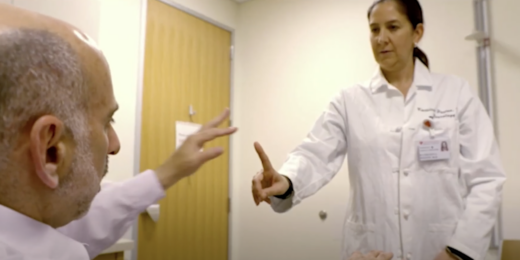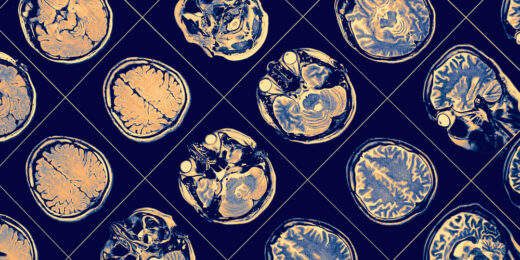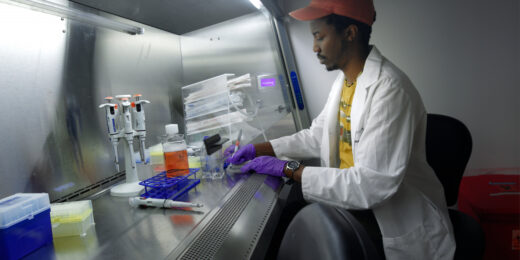Stanford Medicine psychiatrist Anna Lembke unpacks the potential of FDA-approved weight-reducing GLP-1 drugs like Ozempic as tools in treating addiction.
Category: Precision Health
Optimizing the telehealth experience could benefit patient, physician
Stanford Medicine's Kevin Schulman says digitally enabled care (DEC) would ease clinical workload and improve services for patients beyond virtual visits.
What’s the deal with BMI, aka body mass index?
Some researchers and clinicians are questioning the value of the body mass index, which estimates a person’s body composition. But do better alternatives exist?
Stanford Medicine launches new podcast, Health Compass
New Stanford Medicine podcast, Health Compass, focuses on the crucial research and important researchers moving health topics forward.
How space became a place for the study of aging
Stanford Medicine scientists are studying why even brief trips into space can weaken muscle and heart tissue, mimicking decades of aging on Earth.
The inflammation connection: Kids with PANS at high risk for arthritis
‘We’re like inflammation detectives!’ says Stanford Medicine’s Jennifer Frankovich. Parsing out pain and inflammation is just part of discovering why kids face debilitating psychiatric effects of a distressing disease.
What’s the deal with PFAS, aka ‘forever chemicals’?
The so-called ‘forever chemicals’ can stick around in the environment — and in our bodies. Scientists agree there is cause for concern. So what should we be doing to mitigate our health risks?
Mental health and menopause: There are connections and solutions
Many women experience extreme mood fluctuations as they approach menopause. Stanford Medicine’s Karen Adams says knowledge and access are key to aiding this normal condition.
These are the tools for providing top-notch diabetes care to everyone
Using AI, continuous glucose monitors, and an equity approach, diabetes care could be saving many more lives, Stanford Medicine researchers say.
What getting granular with pregnancy data means for those of AANHPI heritage
By further segmenting study results, Stanford Medicine’s Irogue Igbinosa and collaborators have begun to tease out important health differences between different subsets of the population.
Ask Me Anything: Everything to know about allergy season — and more
An Ask Me Anything Q&A with Stanford Medicine's Sharon Chinthrahjah, and expert on all things allergy-related.
Why detecting the earliest biological signs of Parkinson’s disease is so crucial
A new test can detect the biological signature of Parkinson’s disease before symptoms arise. A Stanford Medicine neurologist explains why early diagnosis opens the door to better therapies.
One step back: Why the new Alzheimer’s plaque-attack drugs don’t work
A few closely related drugs, all squarely aimed at treating Alzheimer’s disease, have served up what can be charitably described as a lackadaisical performance. Stanford Medicine neurologist Mike Greicius explains why these drugs, so promising in theory, don’t appear to be helping patients much if at all.
How the death of his wife drives data scientist to improve the system
In his grief over losing his wife, Amir Bahmani realized how much data science could impact medicine and potentially save lives.
New cardiovascular risk calculator includes social determinants of health, excludes race
Many social determinants of health can influence a patient’s risk, but Palaniappan and fellow researchers have noticed, from working with data from patients around the nation, that race is not among the most accurate or equitable.
How music gives aspiring physician-scientist a proper life rhythm
Quenton Rashawn Bubb continues to value the complex, complementary nature of work on parallel paths -- not just as a musician/academic, but now on the path to his career.

















